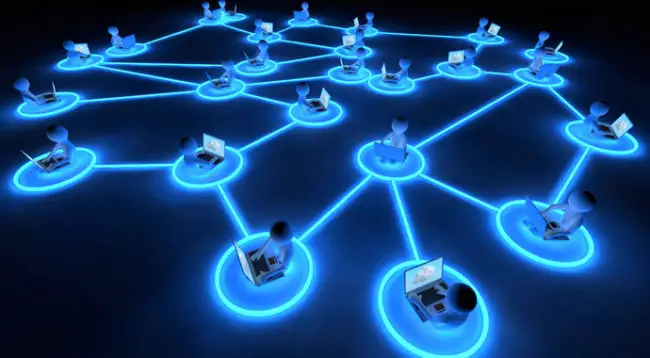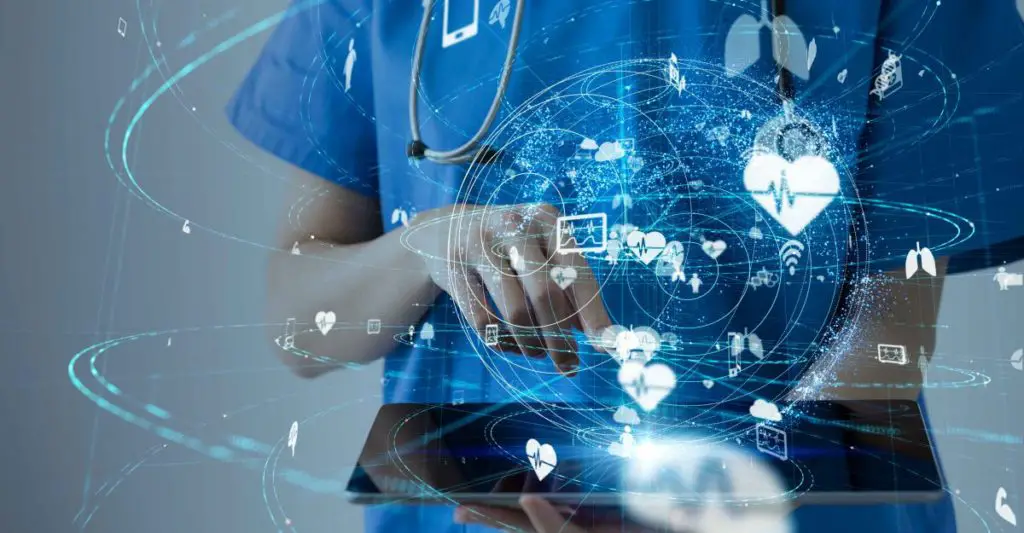
Introduction
An equipped Health Informatics Nurse improves quality and efficient health care for patients with the aid of high technology in the field of Nursing.
Technology and health informatics nurse has changed how healthcare institutions run in the digital age, allowing them to provide patients with more efficient treatment. The use of enhanced health information systems, which are transforming healthcare administration, is a major component of this shift.
The role of health informatics nurse, who are essential to the improvement of these systems, is at the center of this shift. We will examine five important effects of better health information systems in healthcare institutions in this article, stressing the critical function of health informatics nurse in making sure they are successfully implemented.
Table of Contents

Health informatics nurse
Here are the Health Informatics Nurse: 5 Impacts of Improved Health Information Systems in Healthcare Facilities
1.) Enhancements in Patient Care and Safety
Healthcare institutions are now able to keep complete and accurate records of each patient’s medical history thanks to improved health information technology. In order for healthcare professionals to make choices that are based on correct and current information, health informatics nurse play a crucial role in protecting the security and integrity of these data. By lowering medical mistakes, assuring prompt access to vital information, and enabling improved coordination amongst healthcare practitioners, this improves patient care.
Healthcare institutions can stop using paper-based records by deploying electronic health records (EHR) systems, which lowers the risk of lost or missing data. These systems’ development and implementation are the responsibility of health informatics nurse, who make sure that they correctly gather pertinent patient data. They work together with healthcare experts to define processes for data input and validation, create standardized documentation templates, and determine the information areas that are required. This methodical approach encourages precision and consistency, which improves patient care and safety.
In addition, health informatics nurses are essential to maintaining the confidentiality and privacy of patient health information. To secure sensitive data from unwanted access or breaches, they put in place strong data protection mechanisms including encryption and access restrictions. Health informatics nurse support patient trust and ethical behaviors in healthcare institutions by preserving the confidentiality and integrity of patient records.
2.) Improved Efficiency and Simplified Workflows
Healthcare institutions can reduce their administrative procedures and increase overall efficiency by integrating health information systems. These technologies are designed and implemented in large part by health informatics nurses, ensuring a smooth interface with current workflows. They evaluate the present workflows, spot inefficiencies, and suggest ways to automate repetitive operations like appointment booking, report generation, and patient data management.
The decrease of superfluous paperwork and manual data input is one key effect of enhanced health information systems. Nurses who specialize in health informatics collaborate closely with medical specialists to pinpoint areas where automation might boost productivity. They create electronic forms, templates, and processes that do not require human data input, freeing up healthcare personnel to devote more time to giving patients the best treatment possible.
The interoperability of health information systems is also facilitated by health informatics nurses allowing for the easy transmission of patient data between various departments and healthcare institutions. In order to facilitate effective data sharing and exchange across various healthcare providers, they make sure the systems comply with recognized interoperability standards like HL7 (Health Level Seven) and FHIR (Fast Healthcare Interoperability Resources). This interoperability encourages continuity of treatment, minimizes duplication of tests or procedures, and gives access to full patient data to healthcare providers, enabling them to make better-informed decisions.
3.) Better Decision-Making and Data Analytics
Massive volumes of data are produced by health information systems, and when correctly examined, they may offer important insights to healthcare professionals. Health informatics nurses are skilled at deciphering this data, spotting patterns, and producing insightful reports. This data-driven strategy promotes evidence-based decision-making, which enhances patient outcomes and results in more precise diagnoses and improved treatment strategies.
The advent of health information systems has given nurses who work in informatics access to powerful analytical tools and methods. To find patterns, trends, and correlations that can guide clinical procedures and healthcare policy, they extract, convert, and analyze data. For instance, they can use population health data analysis to find high-risk populations, common illnesses, or healthcare delivery gaps. Healthcare providers may use this information to create focused interventions, preventative measures, and plans for resource allocation.
Additionally, clinical decision support systems (CDSS) are developed by health informatics nurses in partnership with healthcare professionals. To help healthcare practitioners make wise decisions, these CDSS make use of algorithms and evidence-based recommendations. CDSS can aid medical practitioners in more successfully diagnosing illnesses, choosing suitable therapies, and managing chronic disorders by combining clinical knowledge, patient data, and best practices.
4.) Improved Collaboration and Communication
Healthcare environments need effective communication and teamwork, particularly in multidisciplinary teams. By offering a consolidated platform for exchanging patient data, test findings, and treatment plans, health information systems enhance fluid communication. The efficient running of these systems is ensured by health informatics nurses, allowing medical personnel to cooperate successfully, share information securely, and reach consensus on choices.
Health informatics nurses provide secure messaging platforms using health information systems, enabling healthcare workers to interact in real-time while protecting patient privacy and confidentiality. Additionally, they deploy telemedicine programs that allow for distant consultations, making it easier for patients who live in rural locations or have restricted mobility to obtain healthcare services.
In addition, health informatics nurses collaborate closely with medical specialists to create tools for care coordination inside health information systems. These tools make it possible for healthcare professionals from various specialties to arrange follow-up consultations, communicate progress notes, and cooperate on patient care plans. Health information systems aid in multidisciplinary cooperation, fostering a more comprehensive and integrated approach to patient treatment that enhances results and patient satisfaction.
5.) Adherence to Regulation Requirements
To guarantee patient privacy, data security, and interoperability, healthcare institutions must adhere to a variety of laws and standards. The implementation of health information systems that adhere to these legal standards depends heavily on the work of health informatics nurses. They ensure that healthcare institutions maintain compliance and secure patient information since they are knowledgeable with privacy laws, data protection, and standards for health information sharing.
To make sure that health information systems abide by laws like the Health Insurance Portability and Accountability Act (HIPAA) and General Data Protection Regulation (GDPR), health informatics nurses work with legal and compliance teams. To preserve patient privacy and guarantee adherence to legal requirements, they set policies and processes for data access, consent management, and breach notification.
Additionally, to simplify the sharing of patient data across various healthcare institutions, health informatics nurses make sure that health information systems satisfy interoperability standards. They use standard data structures, vocabularies, and communication procedures to facilitate information sharing while preserving data security and integrity.
Conclusion
The uprising of this transformation, which has been made possible by advancements in health information technology, is being led by health informatics nurses. Thanks to their expertise in creating, managing, and optimizing these technologies, they play a crucial part in enhancing patient care, streamlining procedures, strengthening data analytics, fostering collaboration, and ensuring regulatory compliance.
By recognizing the crucial role of health informatics nurses, healthcare institutions may fully realize the promise of improved health information systems to provide better care for patients in a rapidly evolving digital healthcare environment.
Helpful Related Bible Verse
Romans 15:1 We who are strong have an obligation to bear with the failings of the weak, and not to please ourselves. Christians who are obligated to help the weak, will truly be rewarded not because we seek for any compensation but because we have the heart of Christ that we have the spirit to help others in need.
As for nurses, helping patients in need to recover from their ill state have been made to function faster and simpler with the aid of advance technology and health informatics nurses.
Internal Links
1.Soul Winning: 8 Tips for Christians. March 20, 2022
2. Unlocking the Secrets: 10 Best Cell Phone Facts Reveal. June 12, 2023
External Link
1.https://simplyeducate.me/2023/02/07/innovations-in-education/



